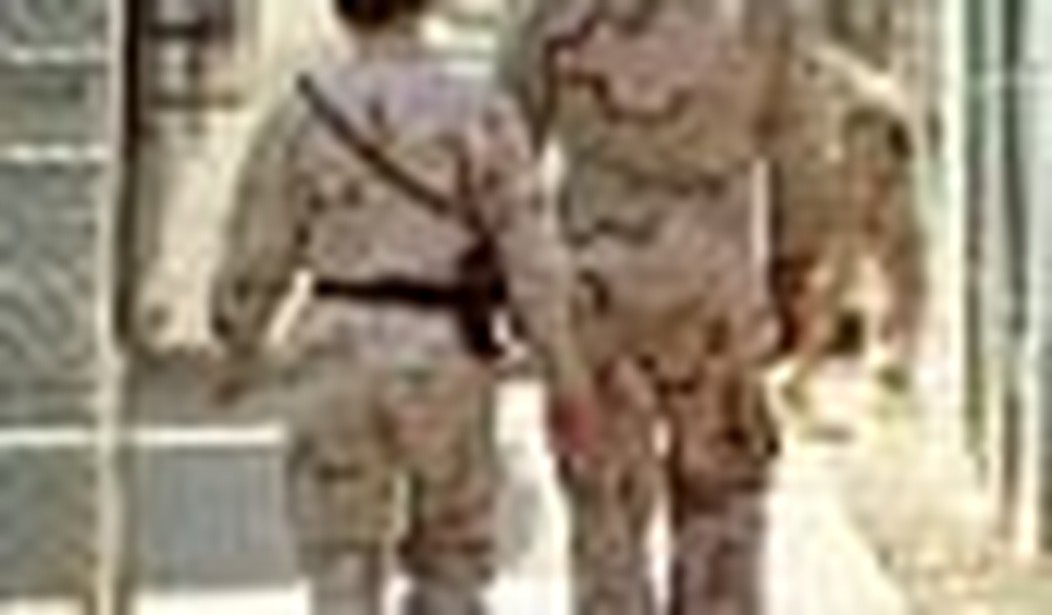I recently visited the detention facilities at the U.S. naval base at Guantanamo Bay, Cuba, and was dismayed at what I saw. The place was nothing like what I expected, and I was struck by how little we Americans actually know about these facilities and the conduct of our personnel there. With every new interview and every new area walk-through I hoped to find some validation of the certainties I brought with me from the hundreds of articles, documentaries, and speeches presented to the American people by our intellectual superiors.
Instead, my experiences at Guantanamo Bay illustrate the thoroughness of the miseducation of the American people and our willingness to assume the worst about our men and women in uniform. Furthermore, the visit clearly demonstrated that there is a widespread ignorance of the complexity of the situation that we face in the current war against our terrorist enemies. This ignorance results in a focus on superficial issues instead of core questions, and a naive trust in false stories and an astonishing proclivity to be misled.
Our willingness to believe the worst about our servicemen and women is evident in the popular beliefs about Guantanamo Bay, despite the facts. There are quite literally too many examples to choose from to represent the overwhelmingly negative and sensational views on what occurs at the hands of American citizens under direct supervision. Here’s one attempt: “Guantanamo Bay, in addition to Abu Ghraib, is a national disgrace and international embarrassment to us, to our country’s ideals, and a festering threat to our security. It is a legal black hole that dishonors the principles of a great nation.” These inaccurate and deliberately misleading comments made by Senator Pat Leahy (D-VT) illustrate the point nicely. Never mind that the incident at Abu Ghraib was never excused by a single military or civilian leader, and that it stands out as an extreme and isolated example of the unfortunate effects that a few anomalous individuals can produce. Instead, he deliberately links Abu Ghraib with Guantanamo in an effort to demonstrate to his audience that there is a pattern of immoral behavior perpetrated by members of our military.
What I found at Guantanamo Bay was that the American servicemen and women there are committed to standards well above those of the average citizen. For twelve hours a day, four days a week, for at least a year, these soldiers with a median age of 22 demonstrate inspiring discipline and dedication to duty. There are multiple assaults on guards every day, mostly verbal and sometimes physical. At least once a week, every week, at least one soldier is doused with a “body fluid cocktail” of feces and urine as they attempt to perform their daily routine. I asked one young female non-commissioned officer what happens after such an event. She explained that the soldier washes off and changes into a clean uniform, and after a medical evaluation is permitted to choose whether or not to return to the cell block.
The option is given so the soldier has the opportunity to calm down, process what happened, and seek out a chaplain or mental health professional if desired. Without my prompting, the NCO added that in the year that she had worked there, not one soldier had decided to take the rest of the day off. Instead, they return to the cell block to show the detainee that no level of provocation will be sufficient to break the soldier’s will or provoke a reaction. Indeed, every soldier is obsessed with performing their duty in a manner worthy of America’s praise and support. As the Joint Task Force commander, Rear Admiral David Thomas, put it, “Of course we’re doing it this way; we’re Americans, and we want Americans to be proud of their military and the way we conduct ourselves.” In order to confirm that the nasal feeding tubes were humane and effective, Rear Admiral Thomas instructed the medical staff to feed him with the device — for a week.
During a brief, Rear Admiral Thomas made a point that all Americans should understand. He said, “The debate about the right policy and the right legal framework for handling unlawful enemy combatants is extremely important and complicated, and should absolutely continue to take place. But Americans do not have to worry about the treatment of these detainees. We are committed to the safe and humane, legal and transparent care and custody of the detainees at Guantanamo Bay, and we do so in a manner that Americans can be proud of.” These soldiers are dedicated to upholding our highest values in their daily conduct, and are committed to their mission because they know that it helps to protect our nation.
As an Iraq veteran who led convoys transporting detainees, I know firsthand that these men and women represent the norm in our armed forces, not those involved in the Abu Ghraib incident. Due to time limitations on holding detainees at the battalion level, we would brave the roads of Anbar province in the summer of 2006 at all hours to make sure we met these expectations. Despite the frustrations of detaining the same individuals multiple times because of the slowly maturing Iraqi justice system, our Marines showed tremendous integrity and discipline and set an inspiring example. When faced with impossible split-second decisions, Marines would put themselves at incredible personal risk to avoid potential civilian casualties and collateral damage. These men and women volunteered to serve our country at a time of war, and all but a tiny minority are performing admirably in the most challenging of circumstances. They have proven themselves in the face of overwhelming adversity. They deserve our support and respect, not more doubt and disbelief.









Join the conversation as a VIP Member